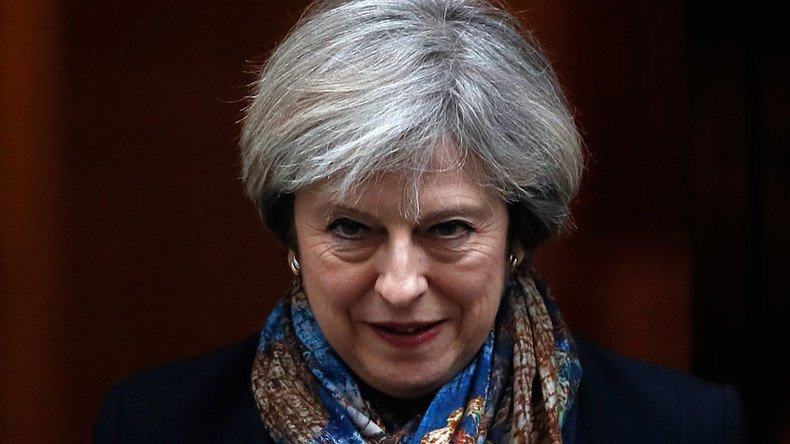Brexit negotiations could start 2 weeks early following govt’s Supreme Court defeat

Prime Minister Theresa May will respond to Tuesday’s Supreme Court ruling by bringing forward her Brexit timetable by two weeks, it has emerged.
According to the Telegraph, May now wants to trigger Article 50, which begins formal negotiations with Brussels, in mid-March. She was previously expected to table her European Union Withdrawal Bill on March 31.
Following the 8-3 Supreme Court ruling against the government, David Davis, the Brexit secretary, addressed the House of Commons and warned “there can be no turning back.”
He said the ruling would not derail May’s timetable to kick off the two-year talks process and said politicians must not use legislation for triggering Article 50 to “frustrate or delay” Brexit.
“The point of no return was passed on June 23 last year,” Davis told MPs, amid fears of obstruction by Labour, the Liberal Democrats and the Scottish National Party (SNP).
“Our timetable for invoking Article 50 by the end of March still stands. That timetable has given valuable certainty to citizens and business in the UK and across Europe, it’s understood by our European partners and provides a framework for planning the negotiation ahead.”
The government has allocated time for two all-day debates next week, with 21 hours of debate the following week. MPs will then debate the European Union Withdrawal Bill and all amendments in a committee of the whole House from Monday to Wednesday the following week.
If debates in Parliament go smoothly, May will trigger Article 50 in mid-March, according to the Telegraph.
One minister told the newspaper: “The Lords will mess us about but we will be all right – politically they can’t stop us.”
Brexit minister Davis said: “The purpose of this bill is simply to give the government the power to invoke Article 50 and begin the process of leaving the European Union. That’s what the British people voted for and it’s what they would expect.
“Parliament will rightly scrutinize and debate this legislation. But I trust no one will seek to make it a vehicle for attempts to thwart the will of the people or delay the process of exiting the European Union.”
It’s thought that more than a dozen Tories whose constituencies were pro-Remain are set to join Labour Party and SNP backbenchers by voting to back an amendment that would force publication of a Brexit White Paper.
The Times reports MPs and peers are preparing to table dozens of amendments to the government’s bill in an attempt to water down or even thwart Brexit.
Labour is reportedly poised to introduce four amendments intended to help Britain avoid becoming a “bargain basement tax haven” outside of the bloc.
An assurance of the rights of Europeans living in Britain and a pledge to regularly update Parliament on the progress of negotiations will be other amendments.
The party will also demand the Commons is granted a “meaningful” vote on the outcome of any deal with the EU.
The SNP on Tuesday vowed to table 50 amendments to the bill. Its demands include forcing the government to seek the consent of the devolved administrations in Scotland, Wales and Northern Ireland over triggering Article 50.














